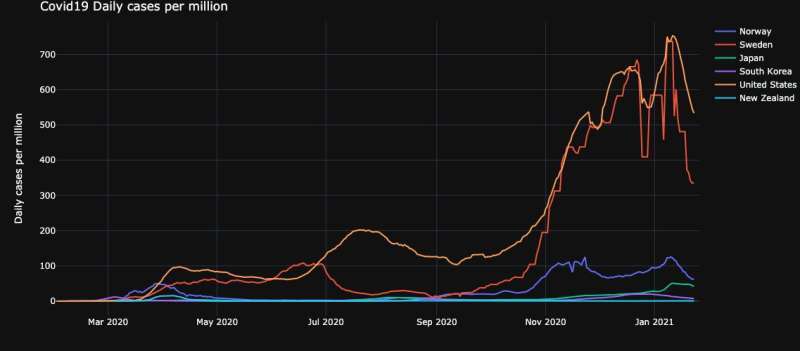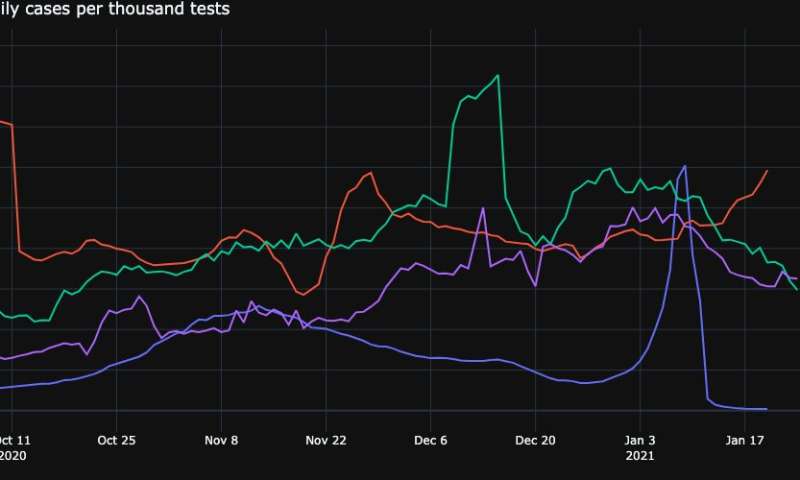
A new online dashboard, created by NYU Professor Alexej Jerschow, brings together COVID-19 data from U.S. states and countries around the world to compare cases, deaths, vaccines, and testing in a visual, user-friendly format.
The tool also integrates a range of policies governments have implemented to limit the spread of COVID-19—including school closings, stay-at-home orders, and mask mandates—in an effort to compare policy responses with COVID-19 outcomes.
Jerschow, who is a professor of chemistry and typically works in the field of magnetic resonance imaging and battery research, was looking for a convenient way to compare COVID-19 data from different countries and states. While the data were available from different sources, there was not a single tool that allowed him to easily analyze how different geographic areas were faring and responding to the pandemic—so, he created one.
“I was curious, for example, whether one could draw parallels between specific U.S. states and other countries, and also how cases correlate with policy decisions,” said Jerschow. “My hope is that this dashboard can fill the gap and become a resource to help people quickly gain an overview of how the COVID situation and policy decisions develop. It is going to be particularly interesting to look at what happens once the vaccinations ramp up further.”

For instance, while the U.S. and Sweden have reported high numbers of COVID-19 cases and fatalities, the dashboard shows lower prevalence in countries like Japan, South Korea, New Zealand, and Norway. “It is clear from looking at the graphs that these countries have found a formula for success and government actions affected outcomes,” said Jerschow.
Crises are not only reflected in cases or fatalities; looking at how many positive cases of COVID-19 are found per test can reveal whether countries and states are managing the crisis well logistically. Countries such as Austria and Mexico and states such as Idaho and Alabama recently experienced periods when more than half of their tests came back positive—bringing into question whether sufficient testing is being done more than six months into the pandemic, when testing capacity should have improved.
Source: Read Full Article
